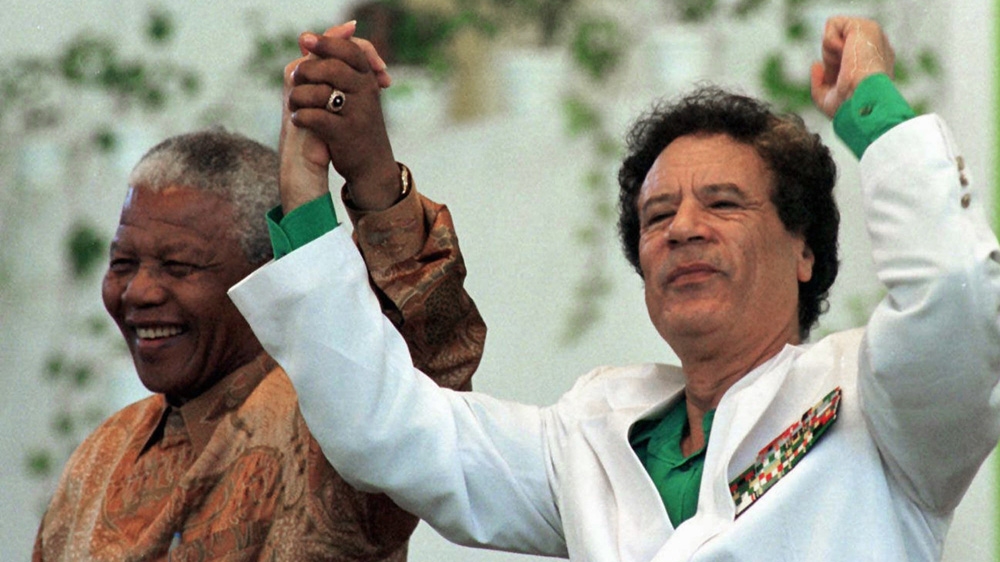
African resistance to AFRICOM was spearheaded by Muammar Gaddafi, the Libyan leader.
President Ronald Reagan had labelled him the “mad dog of the Middle East” and had tried to assassinate him in 1986 by bombing his palace.
The Libyan leader’s independence and influence flowed from the vast petroleum reserves, the largest in Africa, which he had nationalised when he took power.
Gaddafi wanted to demonstrate that Africa could develop without depending on the Western banking system or the International Monetary Fund.
“From the beginning of his political career as a leader, Muammar Gaddafi was opposed to a foreign military presence in Africa. One of the first things he did after coming to power in 1969 was to expel the British and US military bases in Libya itself,” Maximilian Forte, the author of Slouching Towards Sirte: Nato’s war on Libya and Africa, explains.
But in March 2011, as the Arab’s Spring spread through North Africa, France and the United States decided to act. This was AFRICOM’S first war and its commander-in-chief was the first African-American president.
The fall of Gaddafi produced a shockwave that would be felt far beyond Libya.
“Unfortunately there was not a very good handle on the 40,000-plus weapons that Gaddafi had, so quickly, over 35,000 disappeared,” Atallah says.
Some of the weapons fell into the hands of the Libyan rebels. Others, including anti-tank and anti-aircraft missiles, fell into the hands of Tuareg fighters who fought alongside Gaddafi.
The heavily armed Tuaregs formed a new fighting force, the MNLA, and launched an offensive against the government in Bamako in January 2012.
Tuareg and other rebel forces invaded the major cities of northern Mali. Despite years of training and millions spent, the West’s greatest fear became a reality: a so-called Islamic state was established in northern Mali.
“Nobody believed that a few hundred ‘Jihadist fighters’ would take over [Bamako] a city of three million people where they had no significant presence,” says Batou.
But soon the French armed forces lent their support to the Malian units. The rebel advance was stopped and in just two weeks, the French regained the north. The French army claimed to have killed hundreds of so-called terrorists. The former colonial power had become the saviour of the country.